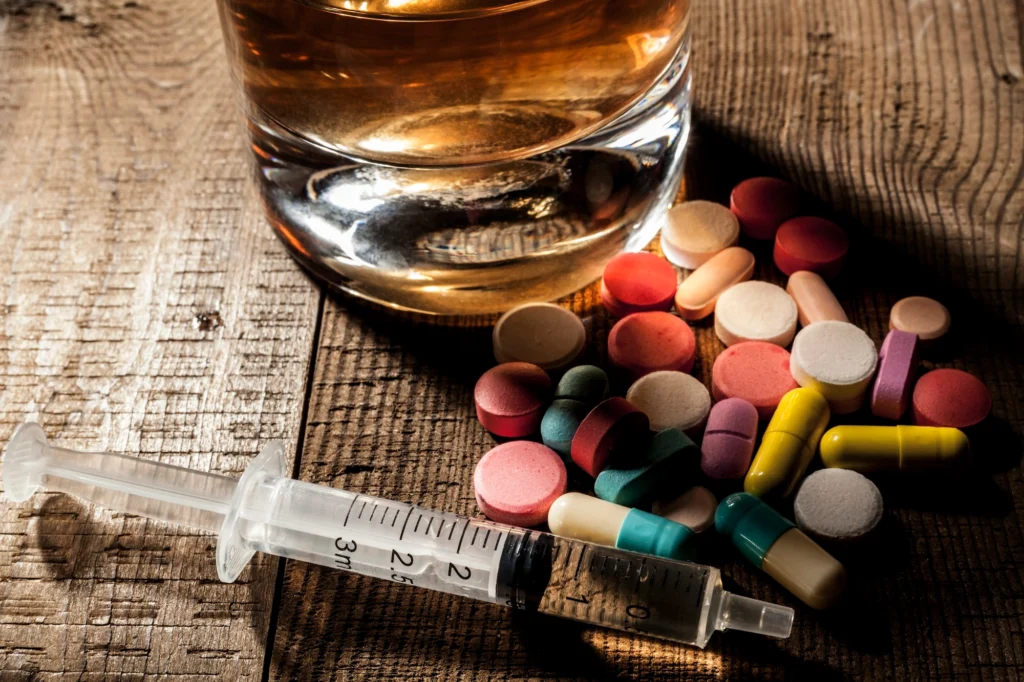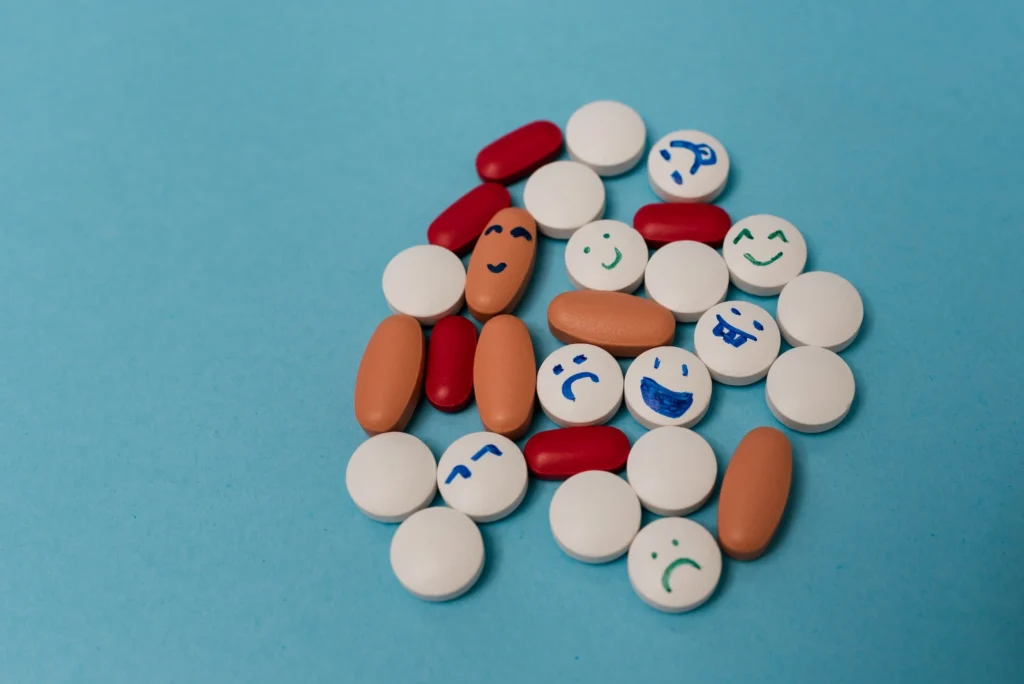When talking about addiction and substance abuse, the term “drug of choice” comes up a lot. It’s a key concept for understanding a person’s relationship with drugs or alcohol. But what does it really mean? Why is it important? And how does it affect the journey to recovery? Let’s break it down.

What Does “Drug of Choice” Mean?
The “drug of choice” is the substance that a person prefers and primarily uses. It’s the one they turn to most often. This preference is usually based on how the drug makes them feel. Some people might like the sense of euphoria like fentanyl or heroin, others might crave relaxation like alcohol, Xanax, or marijuana and some might seek stimulation like cocaine or crystal meth. While a person might try different substances, they often end up favoring one above the rest. This favored substance is their drug of choice.
Why Do People Have a Drug of Choice?
Several factors influence why someone might prefer one substance over another:
- Psychological Factors: Everyone has different reasons for using drugs. Some people might use them to relax, escape stress, or feel more energetic. For example, someone with anxiety might prefer drugs that calm them down, like opioids, while someone who wants more energy might choose stimulants like cocaine.
- Biological Factors: Genetics and brain chemistry also play a role. Some people might be more prone to liking the effects of certain drugs because of how their bodies and brains react to them.
- Environmental Factors: The environment in which a person lives can also influence their drug of choice. If certain drugs are more available or socially accepted in their community, they might be more likely to use those drugs. Addiction effects the upper middle class or very wealthy just as it does in the lower income class.
- Personal Experience: Past experiences with different substances can shape preferences. If someone had a particularly positive or negative experience with a drug, it could influence their future choices. People usually will continue to use a substance if they have not had any negative interactions or consequences with it.
Common Drugs of Choice
Here are some of the most common drugs people might choose:
- Alcohol: Widely available and legal for adults, alcohol is a common drug of choice. It can help people feel relaxed and social, but it can also lead to dependence and serious health problems.
- Marijuana:/THC Known for its relaxing effects, marijuana is another common drug of choice. With the legalization in many places, its use has become more widespread.
- Opioids: These include prescription painkillers like oxycodone and vicodin and illegal drugs like heroin or fentanyl. They are known for their powerful pain-relieving and euphoric effects but are highly addictive and dangerous.
- Stimulants: Drugs like cocaine, methamphetamine (crystal meth), and prescription medications like Adderall fall into this category. They increase energy and alertness but can be very addictive and harmful.
- Hallucinogens: These include substances like LSD and magic mushrooms. They alter perception and can cause hallucinations. While not as addictive as some other drugs, they can still be dangerous.
- Benzodiazepines: Often prescribed for anxiety or insomnia, these drugs can be highly addictive. They include medications like Xanax and Valium.
- Inhalants: These are substances that people sniff or inhale to achieve a quick high. Common inhalants include household products like glue, paint thinners, and aerosol sprays. While they might seem harmless, inhalants can be extremely dangerous and lead to severe health issues or sudden death.

The 5 Key Reasons Why Understanding Your Drug of Choice Is Crucial
- Tailored Treatment: Knowing the drug of choice helps healthcare providers create treatment plans. Different substances affect the body and brain in various ways, so treatment needs to be specific to the substance used.
- Addressing Triggers: Each drug has its own set of triggers and cravings. By knowing the drug of choice, treatment can focus on identifying and managing these triggers more effectively.
- Withdrawal Management: Different drugs cause different withdrawal symptoms. Understanding the drug of choice helps in preparing for and managing withdrawal more safely and comfortably.
- Relapse Prevention: Strategies for preventing relapse should be different based on the substance used. A personalized approach can help individuals develop better coping mechanisms to maintain sobriety.
- Understanding the Root Causes: Identifying the preferred drug or drink can highlight the underlying reasons for its use. This understanding can help address the root causes of addiction, whether they are psychological, biological, or environmental.
Steps to Identify and Address a Drug of Choice
- Self-Reflection: The first step is often self-reflection. Acknowledging which substance is preferred and understanding why can be very enlightening. This can be done through journaling, therapy, or talking with trusted friends or family members.
- Seek Professional Help: Addiction specialists like those at Asheville Recovery Center can help individuals understand their drug of choice and the underlying reasons for their preference. Professional help is also crucial for developing a treatment plan that addresses specific needs.
- Detoxification: If physical dependence is present, detoxification is most likely necessary. This should be done under medical supervision, especially for substances like alcohol, benzodiazepines and opioids, which can have severe withdrawal symptoms or even death.
- Therapy and Counseling: Ongoing therapy can help address the psychological aspects of addiction. Cognitive-behavioral therapy (CBT), for example, can help individuals change their thought patterns and behaviors related to drug use.
- Support Groups: Joining support groups like Alcoholics Anonymous (AA) or Narcotics Anonymous (NA) can provide a sense of community and shared experience. These groups offer support from others who understand the struggles of addiction.
- Lifestyle Changes: Making positive lifestyle changes, such as adopting a healthy diet, exercising regularly, and finding new hobbies, can help in the recovery process. These changes can reduce the likelihood of turning back to the drug of choice.
- Relapse Prevention Plan: Developing a relapse prevention plan is essential. This plan should include coping strategies, emergency contacts, and a clear outline of what to do if cravings become overwhelming.
The Importance of a Support System
Having a strong support system is vital in the journey to recovery. Friends, family, and support groups can provide encouragement, accountability, and understanding. They can also help individuals stay focused on their goals and navigate the challenges of recovery.

Conclusion
Understanding what a “drug of choice” is and why it matters is a crucial step in addressing addiction. By recognizing the preferred substance and the reasons behind its use, individuals can receive more effective and personalized treatment. Recovery is a challenging journey, but with the right support and strategies, it is possible to overcome addiction and lead a healthier, fulfilling life.
If you or someone you know is struggling with addiction, don’t hesitate to seek help. Professional treatment and a strong support system can make all the difference in the world. Remember, recovery is not just about stopping drug use; it’s about creating a new, healthier way of living.






